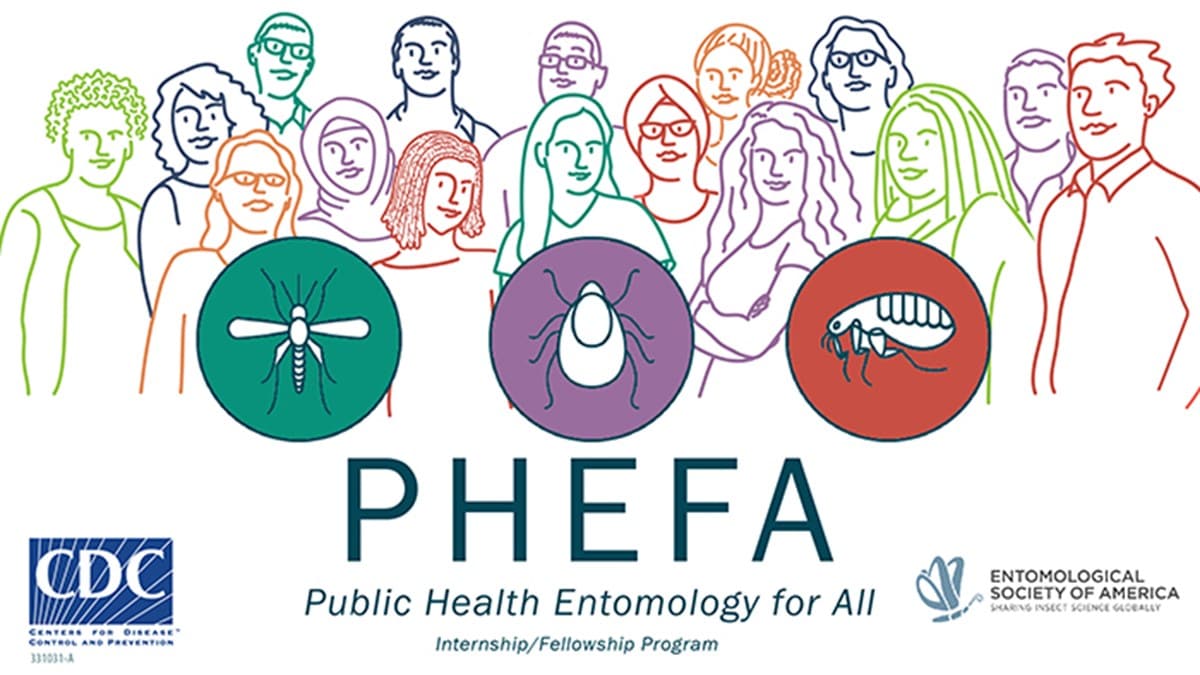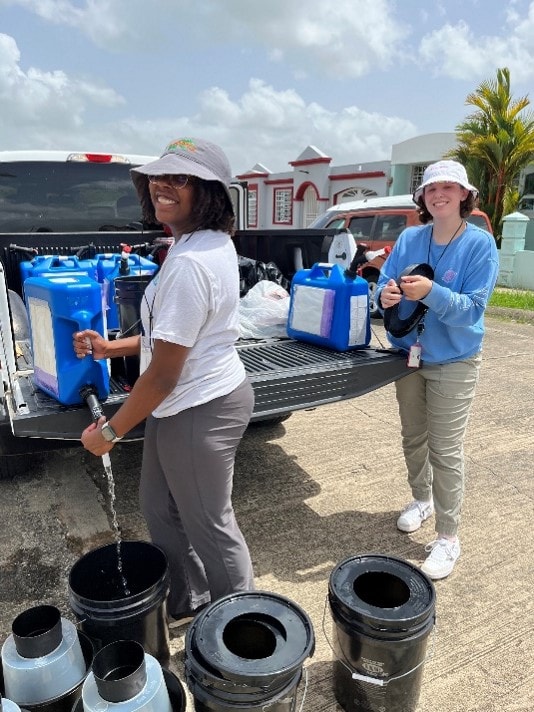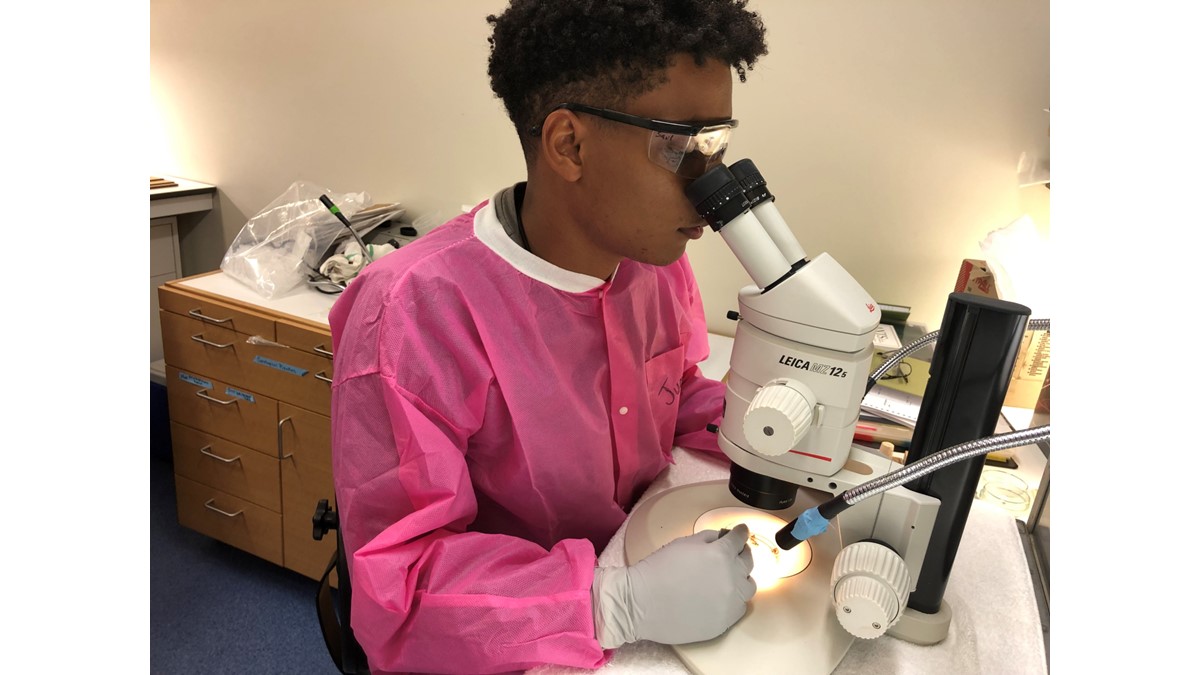What to know
- CDC partners with the Entomological Society of America to offer the Public Health Entomology for All internship and fellowship program.
- This exciting paid opportunity is for students who attended minority serving institutions.
- Interns participate in a 10-week program, while fellows participate in a 1-year program.

Overview
About the program
The mission of the Public Health Entomology for All (PHEFA) internship and fellowship program is to encourage students and recent graduates to pursue public health entomology as a career and work toward a future in which all communities benefit from creative, inclusive, and equitable processes and public health solutions.
The program includes 10-week internships and 1-year fellowship programs and is a partnership between CDC's Division of Vector-Borne Diseases (DVBD) and the Entomological Society of America (ESA).
It is critical for the public health workforce to reflect the communities they serve. According to the National Science Foundation, only 2.3% of entomology and parasitology graduate students are Black, and 4.9% are Hispanic/Latinx. The program was created to support a diverse workforce in the field of entomology and strengthen the field’s ability to develop successful, community-accepted prevention and intervention efforts.
PHEFA implements strategies that expand the racial, cultural, demographic, and experiential diversity of the public health entomology workforce to help better prepare and address health disparities and ensure health equity.

Key program activities
- Assign each participant CDC and ESA mentors
- Train participants in entomology laboratory and field skills in five core areas:
- Colony maintenance
- Vector collection methods
- Vector-borne disease research
- Mosquito and tick taxonomy
- Vector biology and control
- Colony maintenance
- Create a sense of community and belonging among CDC staff, ESA, and program participants
- Promote networking among current and future entomologists
About internships
Internships last 10 weeks. Interns will learn new entomology skills through activities like:
- Identifying mosquito and tick specimens by using taxonomic and scientific keys
- Learning and refining laboratory skills
- Networking with entomology professionals at universities, state health departments, and local vector control organizations
- Rearing mosquitoes
- Setting up and taking down mosquito traps, or collecting ticks in local parks
- Testing mosquitoes for insecticide resistance
About fellowships
Fellowships last 1 year. Fellows have an opportunity to expand their knowledge and skills in the field of medical entomology through activities like:
- Testing Ixodes species ticks submitted by states
- Conducting research on anti-tick vaccines
- Studying Aedes aegypti insecticide resistance in the U.S. Virgin Islands
- Responding to vector-borne disease outbreaks like dengue and Oropouche viruses
Join the program
PHEFA is an exciting opportunity for students who attended Minority Serving Institutions. Applications for 2025 will open on December 15, 2024. Key dates:
- December 15, 2024: Applications open
- February 3, 2025: Applications close
- March 2025: Interviews held and offers made
- May 28–30, 2025: Program orientation (required for all participants)
Application information
Please visit Entomological Society of America's website for more information about the program and how to apply.

